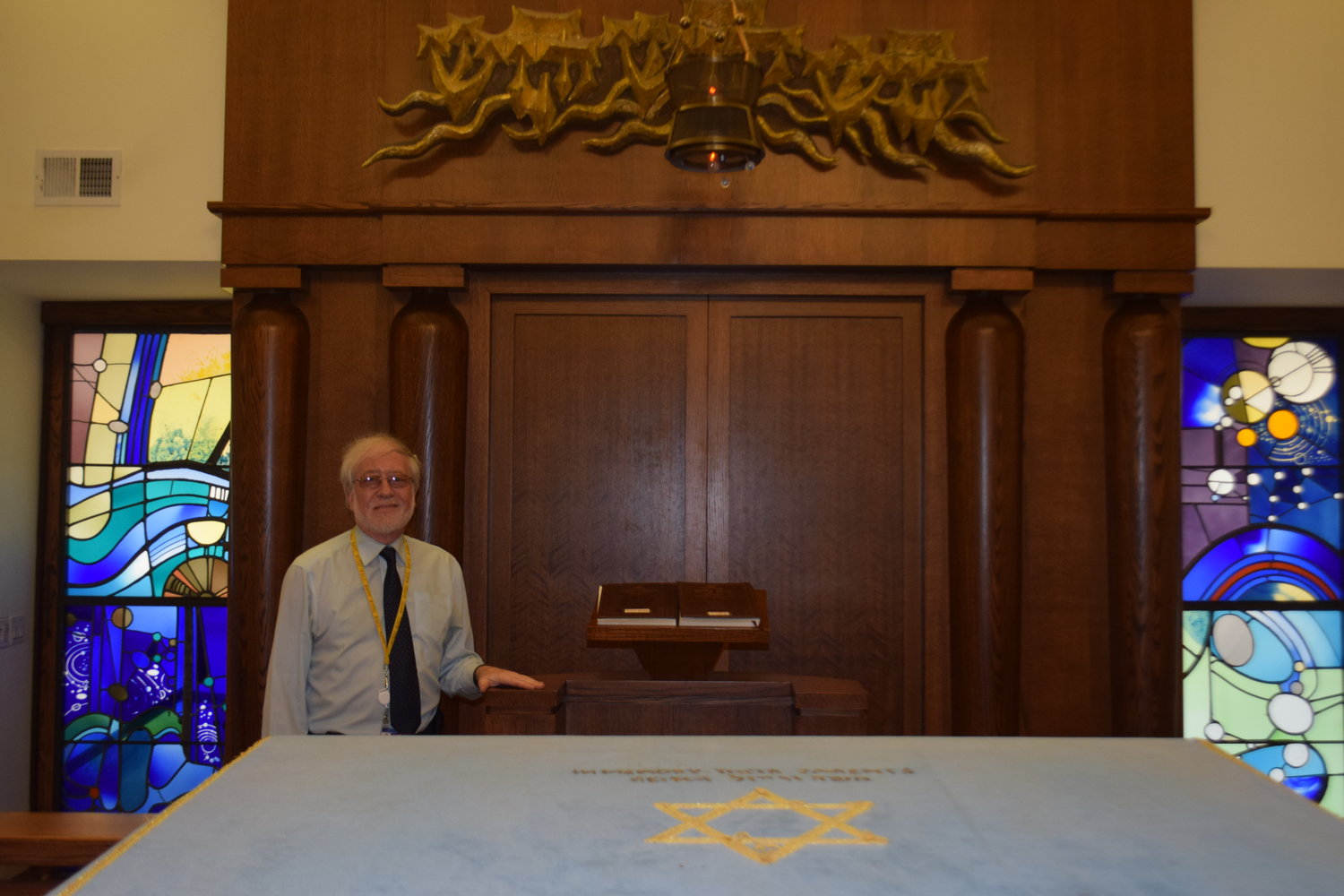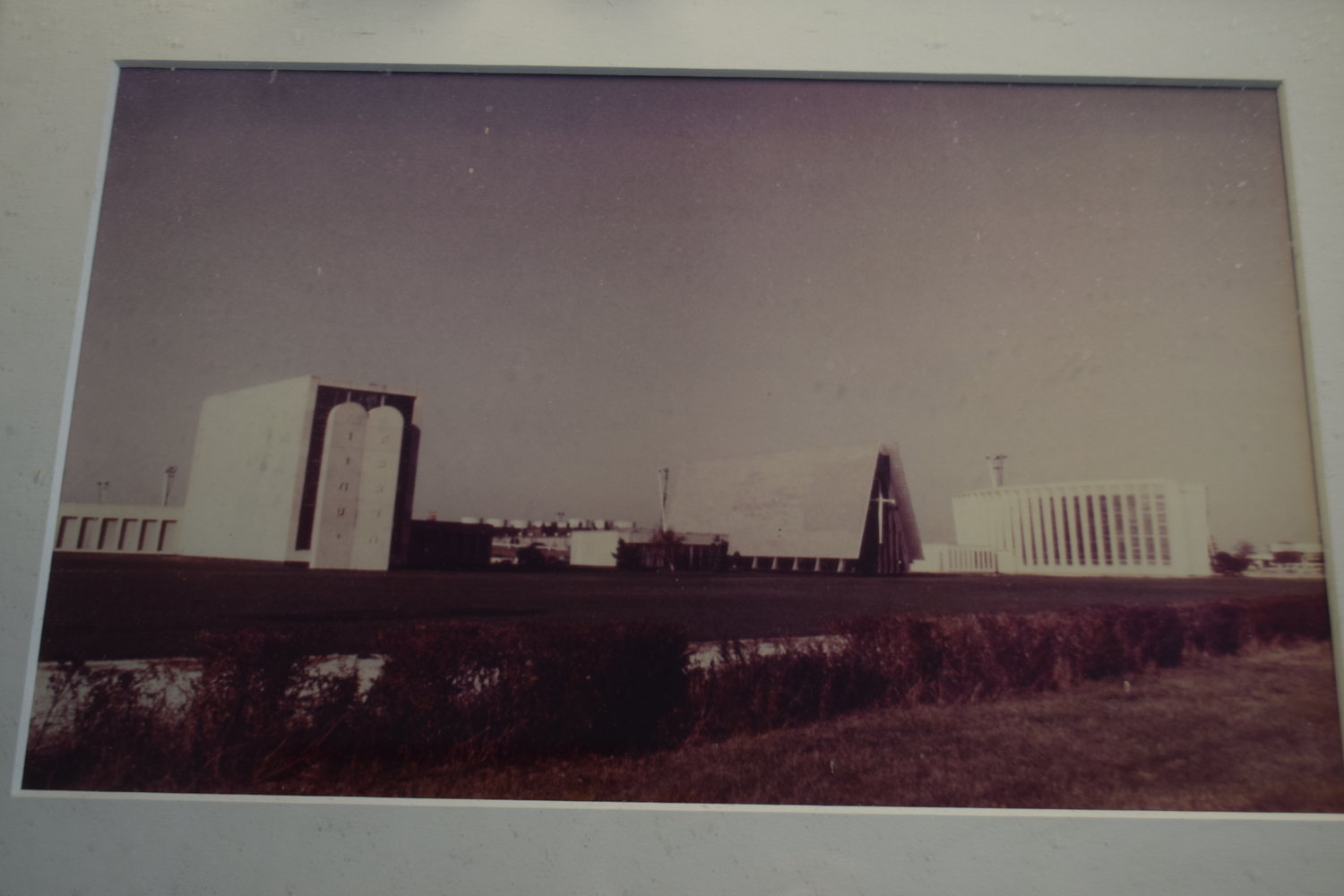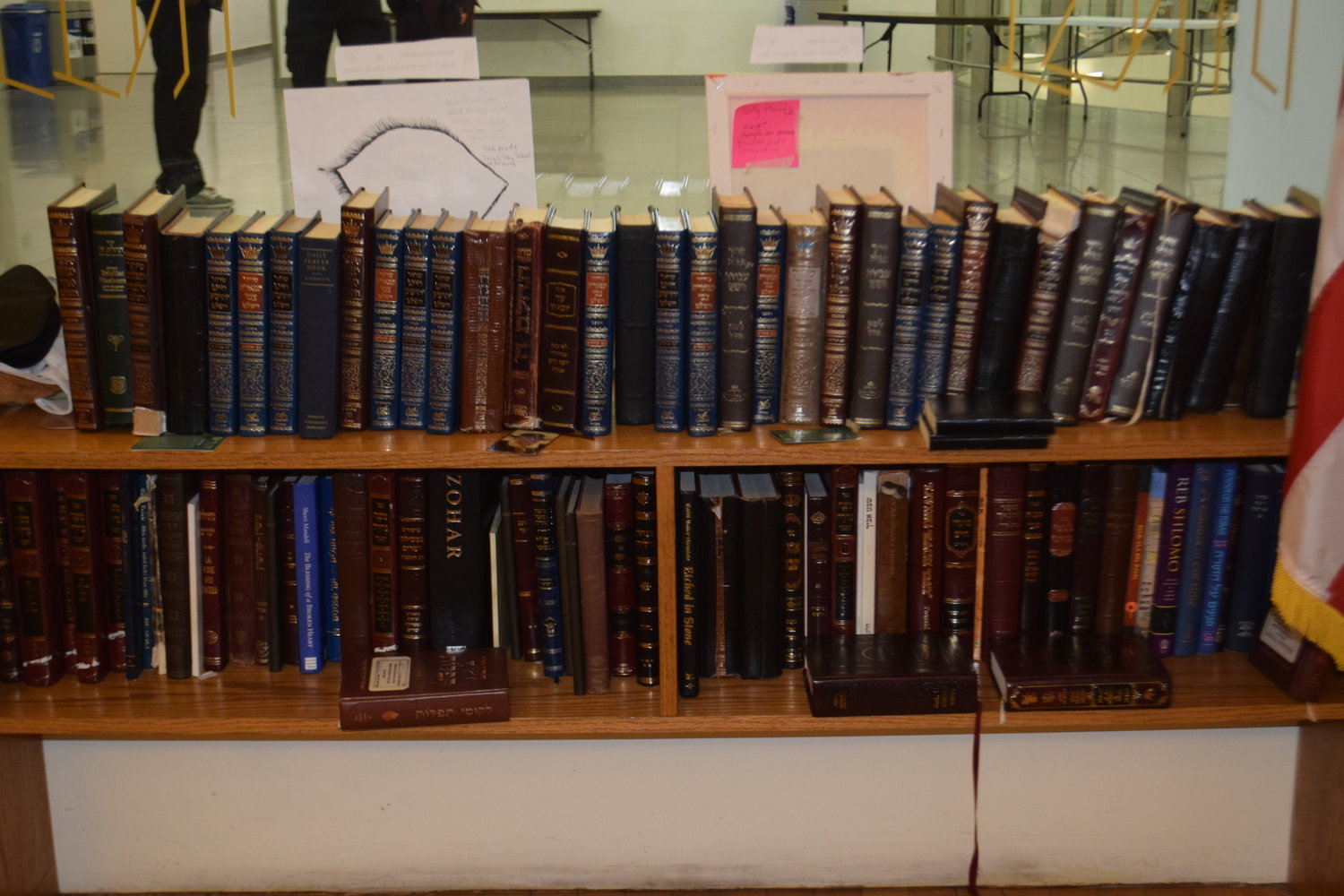Spiritual guidance for an arriving and departing congregation
International Synagogue at JFK serves Jews in transit
Roughly five miles from the multitude of Jewish houses of worship in the Five Towns that serve dues-paying members and hold a wide array of events and programs is an atypical congregation, one that comes and goes with flights into and out of John F. Kennedy International Airport.
The International Synagogue, on the fourth floor of Terminal 4, is one of four chapels — the others are Catholic, Protestant and nondenominational — that offer space for religious services. Tucked into a corner of the terminal, each of the four can accommodate up to 50 people. The nondenominational space is used mostly by Muslims.
The synagogue is no less conversant with its worshippers than any other, with a spiritual leader, Rabbi Ari Korenblit, who has more than four decades of experience and nearly five years of practice tending to a transient congregation.
“Everybody has a wonderful story, and you meet people from all over the world,” Korenblit said as he sat behind his desk in a small office that features Judaica and books from a chapel museum and library that no longer exists, having been converted into a conference room a few years ago. Referring to his unusual congregation, he added, “It is special and unique.” The space is one of only two international synagogues in the world — the other is in Tel Aviv, Israel — and the only one at an airport.
Roughly 60 million people come through JFK annually, according to tripsavvy.com, and with the El Al Airlines check-in counter nearby, along with other international carriers such as Aerosvit, Delta, KLM and Swiss Air, the four chapels, side by side, are well situated to provide spiritual sustenance to hurried and weary travelers. “People are surprised that we have so many prayer spaces,” Korenblit said. “We’re here for everybody.”
Korenblit has an unusual background: He is a psychoanalyst as well as a certified handwriting analyst and document examiner. (He has testified in court, and written papers using handwriting to analyze personalities, including those of President Trump and Russian President Vladimir Putin.) He counsels parents through the distress of having children traveling to Israel, and offers crisis counseling in case of emergencies. “Many people in transit need to have services,” he said, adding that those services range from a morning prayer group to saying Kaddish, the Hebrew prayer for someone who has died.
Synagogue history
Founded in 1958, the International Synagogue began functioning as a house of worship at what was then known as Idlewild Airport four years later. In 1965, the Port Authority of New York and New Jersey, the governing body of the region’s transportation infrastructure, leased land for separate buildings at what was now Kennedy Airport to Catholic, Jewish and Protestant groups.
The New York Board of Rabbis organized the project to build a synagogue. Each of the three religious buildings had space for 250 people, with meeting rooms and a library, kitchen and small museum. The Jewish chapel was dedicated in 1967, in a ceremony attended by, among others, Vice President Hubert Humphrey. The chapels, Humphrey said, represented “a symbol of the essential unity of our great religions and a pledge of their determination to make this a better nation and a better world.”
Citing the inconvenience for employees and passengers who wanted to use the chapels, the Port Authority moved them inside what was then the International Arrivals building in 1988, and the three chapel buildings were demolished. Until 2001, the Catholic, Jewish and Protestant groups shared one temporary chapel on the second floor, until separate chapels were built.
“It’s not a typical synagogue,” said Adam Kaufman, an attorney who has lived in Woodmere for 20 years and serves as the Jewish chapel’s board president. “It was built a long time ago, when far more Jewish people worked at the airport and wanted a place to meditate and pray.”
Kaufman, a member of Young Israel of Woodmere, was asked to review the airport synagogue’s bylaws three years ago, and before long he became a board member, and then its leader. The synagogue, which is supported mainly by donations, was once under the aegis of the New York Board of Rabbis, but is now autonomous, though it maintains an affiliation with the group. Established in 1881, the board serves as an umbrella organization for rabbis serving congregations, businesses, service agencies and schools.
“The synagogue is symbolic of the Jewish community in America,” Kaufman said, noting that international travelers who come from a place without a Jewish community can pray in their own space in one of the world’s busiest airports.
Serving as a model
In the past, dignitaries such as Abba Eban, David Ben-Gurion and Golda Meir were greeted at the International Synagogue. Prominent rabbis and leaders still visit. Korenblit hosts a Thursday Lunch and Learn program, and the synagogue runs a student art contest that has included submissions from the Hebrew Academy of Long Beach and the Hebrew Academy of the Five Towns and Rockaway.
Organizations ranging from Birthright Israel to United Synagogue Youth have made the chapel a meeting place on their way to or from the Jewish state. “It now serves primarily as a launching pad for Jewish youth groups,” Kaufman said, “and where visiting dignitaries coming in from Israel can find a real, functioning synagogue with Torah scrolls and an ark.”
Rabbi Joseph Potasnik, president of the New York Board of Rabbis, said the synagogue serves as a “spiritual haven” for those who have difficulty flying, and its presence at Terminal 4 is meaningful, because “these different faiths recognize that, ultimately, their security is predicated on relationships.”
“People traveling separately, together, simultaneously learn that we travel on different paths and then learn that we have to travel together,” Postasnik said when asked about the importance of having all four chapels side by side. He hinted that the International Synagogue model could be replicated soon at another U.S. airport, but declined to provide more information because of ongoing negotiations.
To contact the International Synagogue, call (718) 856-5044 or email office@internationalsynagogue.org.

 44.0°,
Mostly Cloudy
44.0°,
Mostly Cloudy 










